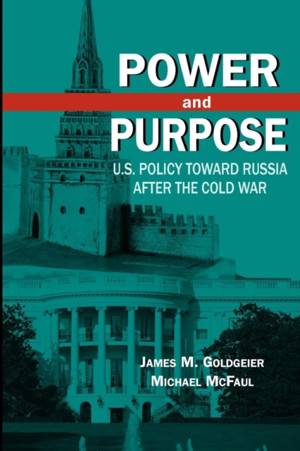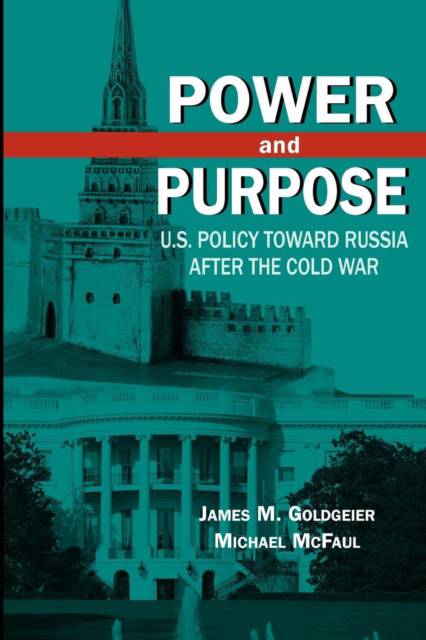
- Afhalen na 1 uur in een winkel met voorraad
- Gratis thuislevering in België vanaf € 30
- Ruim aanbod met 7 miljoen producten
- Afhalen na 1 uur in een winkel met voorraad
- Gratis thuislevering in België vanaf € 30
- Ruim aanbod met 7 miljoen producten
Zoeken
Power and Purpose
U.S. Policy Toward Russia After the Cold War
James M Goldgeier, Michael McFaul
Paperback | Engels
€ 50,95
+ 101 punten
Uitvoering
Omschrijving
Russia, once seen as America's greatest adversary, is now viewed by the United States as a potential partner. This book traces the evolution of American foreign policy toward the Soviet Union, and later Russia, during the tumultuous and uncertain period following the end of the cold war. It examines how American policymakers--particularly in the executive branch--coped with the opportunities and challenges presented by the new Russia. Drawing on extensive interviews with senior U.S. and Russian officials, the authors explain George H. W. Bush's response to the dramatic coup of August 1991 and the Soviet breakup several months later, examine Bill Clinton's efforts to assist Russia's transformation and integration, and analyze George W. Bush's policy toward Russia as September 11 and the war in Iraq transformed international politics. Throughout, the book focuses on the benefits and perils of America's efforts to promote democracy and markets in Russia as well as reorient Russia from security threat to security ally. Understanding how three U.S. administrations dealt with these critical policy questions is vital in assessing not only America's Russia policy, but also efforts that might help to transform and integrate other former adversaries in the future.
Specificaties
Betrokkenen
- Auteur(s):
- Uitgeverij:
Inhoud
- Aantal bladzijden:
- 467
- Taal:
- Engels
Eigenschappen
- Productcode (EAN):
- 9780815731733
- Verschijningsdatum:
- 29/10/2003
- Uitvoering:
- Paperback
- Formaat:
- Trade paperback (VS)
- Afmetingen:
- 170 mm x 221 mm
- Gewicht:
- 657 g

Alleen bij Standaard Boekhandel
+ 101 punten op je klantenkaart van Standaard Boekhandel
Beoordelingen
We publiceren alleen reviews die voldoen aan de voorwaarden voor reviews. Bekijk onze voorwaarden voor reviews.







